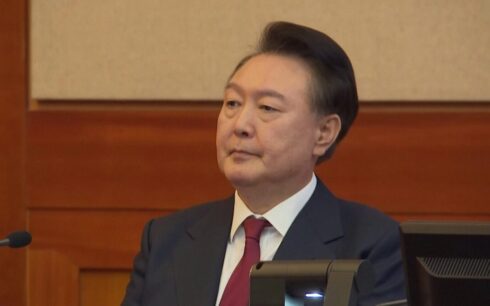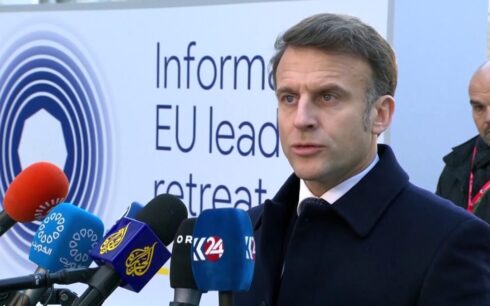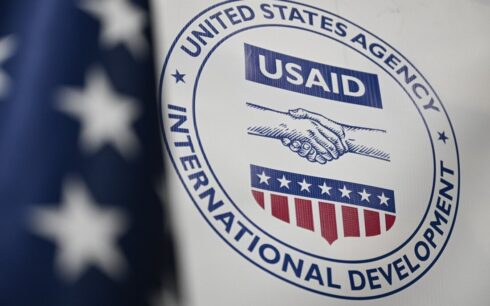Leaders across the Middle East and international rights organizations condemned President Donald Trump’s proposal to “take over” Gaza and permanently remove its 2.2 million residents, calling it a violation of international law and an assault on Palestinian rights.
Palestinian officials, regional governments, and humanitarian groups denounced the remarks, made during a news conference alongside Israeli Prime Minister Benjamin Netanyahu, as an endorsement of forced displacement. Critics warned that such a move would amount to ethnic cleansing and escalate tensions in an already volatile region.
Palestinian leaders dismissed Trump’s suggestion outright, emphasizing that Gaza’s residents would not abandon their homeland.
“Our homeland is our homeland,” Riyad Mansour, the Palestinian envoy to the United Nations, said in a video posted on X. “Even if a part of it is destroyed, Palestinians still choose to return.” He cited the recent return of 400,000 displaced Palestinians to northern Gaza despite severe devastation.
Mustafa Barghouti, a Palestinian opposition politician in the occupied West Bank, called the proposal a “war crime.” “All Palestinians without exception completely reject Trump’s comments,” he said, describing them as a “call for ethnic cleansing.”
Hamas, which ruled Gaza before the current war with Israel, called Trump’s remarks “dangerous” and urged international organizations to take a firm stance against them.
Saudi Arabia rejected the idea of forcibly removing Palestinians from Gaza and reiterated that it would not establish diplomatic ties with Israel—long sought by Washington—without the creation of a Palestinian state. Other Arab nations also opposed the proposal, warning that any forced expulsion of Gazans would violate international law and fuel further instability.
Trump’s remarks came amid concerns that Israeli hardliners have pushed for the mass resettlement of Gaza’s population outside the enclave. Arab leaders have repeatedly rejected such proposals, insisting that a lasting resolution must be based on Palestinian self-determination and territorial sovereignty.
Trump’s proposal represents a sharp departure from decades of U.S. policy, which has supported a two-state solution with Gaza, the West Bank, and East Jerusalem forming a future Palestinian state.
Speaking at the White House, Trump framed his plan as a response to Gaza’s devastation after more than a year of war. “I think we need another location,” he said. “I think it should be a location that’s going to make people happy.”
When asked how many Gazans he intended to move, Trump replied, “All of them.” He suggested they could be resettled in a “good, fresh, beautiful piece of land” in another country, adding that Gaza itself could be transformed into a “Riviera of the Middle East.”
The remarks immediately fueled concerns among Palestinians and regional leaders that the U.S. could be aligning itself with efforts to permanently alter Gaza’s demographics rather than rebuilding the enclave.
Human rights organizations warned that any mass removal of Palestinians from Gaza would be a violation of international law. Displacement of civilians in conflict zones is prohibited under the Fourth Geneva Convention, and Palestinian groups said they would challenge any such plan in international courts.
Trump’s proposal also comes at a sensitive moment in U.S. foreign policy, as Washington seeks to broker broader agreements between Israel and Arab states. With regional backlash mounting, analysts say Trump’s comments could complicate efforts to restore diplomatic engagement with key Middle Eastern allies.
As condemnation grows, Palestinian leaders and human rights advocates are calling for international guarantees that Gaza’s residents will not be forcibly removed. “The wishes of the Palestinian people must be respected,” Mansour said. “Gaza is our home, and we will rebuild.”





